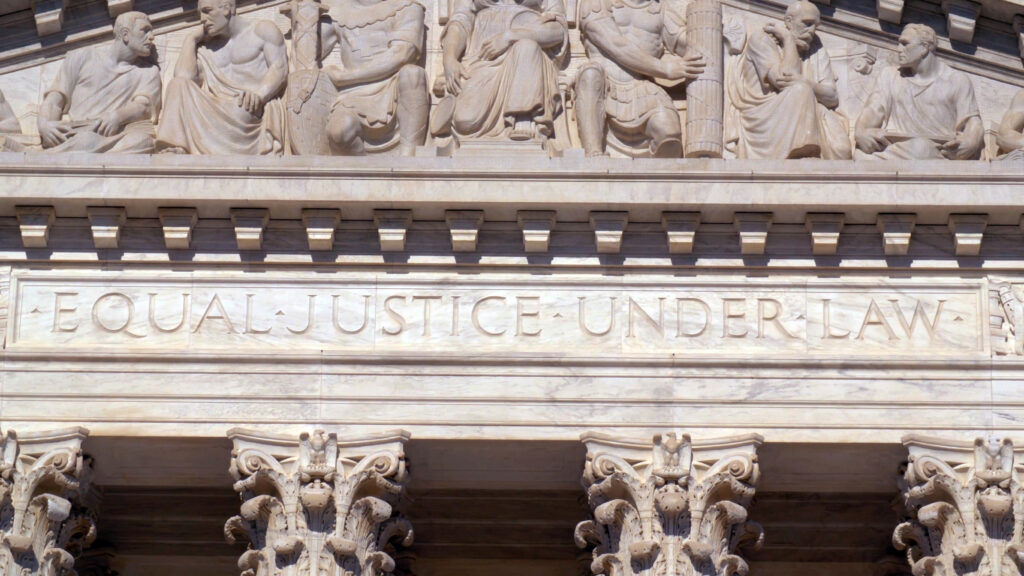Arbitration is a standard legal tool that businesses and entities use to settle disputes between parties outside of the courtroom. In the case Rent-A-Center West v. Jackson, the U.S. Supreme Court held that a court can only decide the enforceability of an arbitration provision if one party objects to that provision specifically. But if a party objects to the enforceability of the entire agreement between the parties, and there is a clear and unmistakeable delegation clause, then the arbitrator must decide the issue of the enforceability of the agreement as a whole.
The Facts of Rent-A-Center West v. Jackson
Antonio Jackson sued his employer, Rent-A-Center, in federal court in Nevada over employment discrimination. The case found that the arbitration agreement between the employer and employee was valid, which Jackson had admitted to the court. However, the former employee argued the arbitration agreement was unconscionable under Nevada law and therefore was unenforceable under the Federal Arbitration Act (FAA).
Rent-A-Center moved to dismiss or stay the proceedings under provisions of the FAA and to compel arbitration pursuant to the signed Mutual Agreement to Arbitrate Claims form that both parties signed at the beginning of Jackson’s employment with the company. The agreement stated unequivocally that an arbitrator resolves any disputes regarding the interpretation, validity, or enforceability of said agreement.
The initial ruling by the district court in Nevada sided with the employer to compel arbitration rather than saying the arbitration agreement was unconscionable. Still, the Ninth Court of Appeals overturned the decision.
How do you prove the unconscionability of an arbitration agreement?
Courts generally define the unconscionability of an arbitration agreement as an absence of meaningful choice on the part of one or more parties entering into the arbitration agreement that unreasonably favors another party. For example, one side has no choice but to enter into the arbitration agreement.
It is challenging to prove this in a court of law, considering parties enter into an arbitration agreement, whether the actual agreement has been signed or not in some cases. Often, employers will say, “as a condition of employment, the employee agrees to…” and then the employee signs the form. Many court complaints discuss the fine print that is not understandable to individuals, arbitration agreements were signed under less-than-ideal circumstances, or using peer pressure to have someone sign an agreement.
There must be substantial evidence to prove the unconscionability of arbitration agreements. Even in relationships that are not employer-employee, arbitration agreements can be enforceable through covenants, conditions, and restrictions as outlined in real estate agreements (U.S. Home Corporation vs. The Michael Ballesteros Trust). Agreements with social organizations like fraternities (Cornelius v. Alpha Kappa Lambda) may also be bound through arbitration.
In California, the standard for unconscionability includes examining the following factors:
- Providing for neutral arbitrators
- Offering more than the minimal discovery
- Requiring a written award
- Permitting limited judicial review
- Having the same relief available to a plaintiff in a court of law
- Paying the arbitrator’s fees and costs unique to arbitration on the employer
Each state’s courts are different in how they interpret arbitration law. When taken at the federal level, even more evidence may be needed. There are two prongs that many jurisdictions adhere to when trying to prove unconscionability. Procedural unconscionability focuses on the circumstances about which a contract is formed, such as if a provision was offered as “take it or leave it” or if it was buried under mountains of fine print. Secondly, substantive unconscionability comes from terms being overly harsh or one-sided.
Why Rent a Center v. Jackson Went to the Supreme Court

Jackson appealed to the Ninth Circuit, which overturned the lower court’s original ruling by saying the courts can decide the unconscionability of an arbitration agreement. Then Rent-A-Center appealed, and the Supreme Court overturned the appellate court’s ruling, stating that the FAA clearly states that the arbitrator is assigned the issue of determining the unconscionability of an arbitration agreement.
Federal courts and the Supreme Court continually uphold arbitration in case after case, which is what happened in Rent a Center West v. Jackson.
In its opinion, the highest court said, “Under the FAA, where an agreement to arbitrate includes an agreement that the arbitrator will determine the enforceability of the agreement, if a party challenges specifically the enforceability of that particular agreement, the district court considers the challenge, but if a party challenges the enforceability of the agreement as a whole, the challenge is for the arbitrator.”
It didn’t matter that Jackson was claiming discrimination. The mutually agreed upon arbitration terms that Jackson signed as he began his employment stated that any future claims arising from his employment would be settled by an arbitrator, including claims for violation of federal law such as discrimination. Therefore, the high court ruled that Jackson could only settle his claims with an arbitrator.
For someone to seek a legal remedy in a state court, they must file a case based on specific parts of the arbitration agreement, not the agreement overall. Therefore, Rent-A-Center and Jackson need to resolve their disputes in an arbitration setting instead of the courts.
What the Ruling Has Meant for Arbitration Cases Since 2010
In the 2021 case Zeevi v. Citibank, N.A., a dispute arose over the use of text message alerts received from the bank. The plaintiff alleged the defendant had sent texts outside the scope of what was stated in the agreement. He believed the arbitration agreement was unconscionable and took Citibank to court. The federal court in Nevada cited Rent-A-Center v. Jackson in saying it was an arbitrator’s job to determine unconscionability.
The Jackson case set a clear boundary about how someone should challenge whether arbitration is valid. In this case, the employee, Jackson, said the entire arbitration was unenforceable rather than just the delegation provision when a controversy arises. After the Supreme Court’s ruling, even if the person is filing for arbitration against an employer, an arbitrator must decide if the arbitration document is valid rather than the courts.
Plaintiffs must challenge specific clauses in court for further refinement rather than litigate whether the entire agreement is invalid.
Did the USSC’s 2022 opinion in Morgan v. Sundance change all or some of Rent-a-Center’s precedential value?
*Nothing in this article is to be misconstrued as legal advice. If you have an arbitration agreement you think is unfair, please contact an attorney.
Bennett Injury Law Will Represent You in Arbitration Cases
Bennett Injury Law can represent you in front of an arbitrator. Our arbitrators have a proven track record with complex cases for international, commercial, and personal injury arbitration cases. We’ll use our experience in arguments and procedures to fight fiercely for your rights before an arbitrator or a tribunal.
Contact Bennett Injury Law today or call (972) 972-4969 for more information on how we can represent you in an arbitration case. We will fight for you during every phase of arbitration, from the initial complaint and discovery to the final decision of the arbitrator or arbitration panel.

